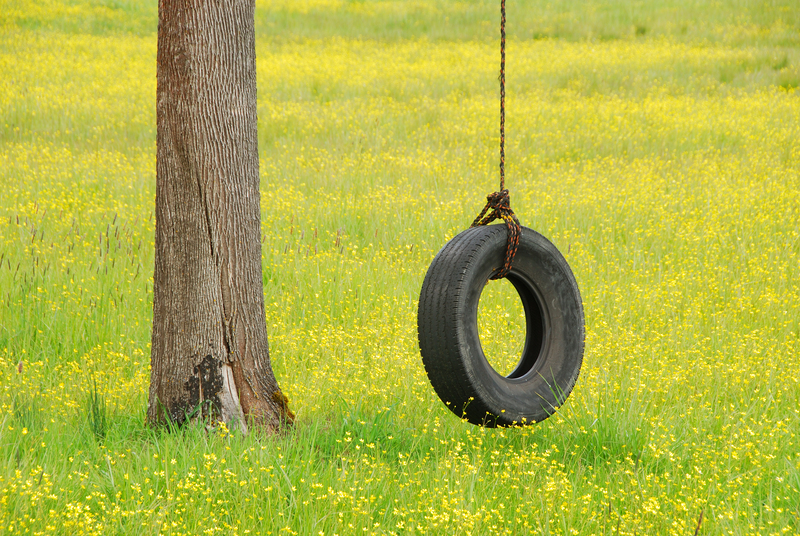Eco-Friendly and Cost-Effective Disposal of Bulky Waste Items
With increasing environmental awareness and stricter landfill regulations, individuals and businesses alike face the challenge of disposing of bulky waste items responsibly. From old furniture and mattresses to large appliances and construction debris, finding a way to get rid of oversized items without harming the planet or breaking the bank is essential. In this comprehensive article, we'll explore various eco-friendly and cost-effective methods for disposing of bulky waste, focusing on sustainability, convenience, and affordability.

What is Bulky Waste?
Bulky waste refers to large items that are too big to fit in standard waste bins. These commonly include furniture, white goods (such as refrigerators and washing machines), mattresses, carpets, garden waste, and even certain types of electronics. Bulky waste poses unique challenges for households, commercial properties, and municipalities due to its size, weight, and sometimes hazardous components.
Common Types of Bulky Waste
- Old sofas, armchairs, and other large furniture
- Mattresses and bed frames
- Large household appliances ("white goods")
- Carpets and rugs
- Garden waste and fencing
- Construction and renovation debris
- Electronics and domestic equipment
Environmental Impact of Improper Bulky Waste Disposal
Improper disposal of large unwanted items can have significant environmental consequences. Bulk items dumped in landfills can occupy considerable space for decades or centuries. Furthermore, many contain toxic materials such as flame retardants, heavy metals, and chemicals that can leach into soil and groundwater. Recycling rates for oversized waste items are often low, compounding these environmental harms.
Responsible bulky waste disposal not only reduces landfill loads but also conserves resources through material recovery, reduces greenhouse gas emissions, and minimizes pollution.
Eco-Friendly and Cost-Effective Disposal Options
Below are multiple methods for disposing of bulky waste that strike a balance between sustainability and affordability. Depending on your location and the types of items you need to dispose of, some options may be more applicable than others.
1. Donation and Reuse
Donating unwanted but usable items is among the most sustainable and budget-friendly methods of disposal. Many organizations accept gently used furniture, appliances, and equipment. Not only does this keep items out of landfills, but it also benefits those in need.
- Charities and thrift stores: Organizations such as the Salvation Army, Goodwill, and Habitat for Humanity's ReStores regularly accept clean, gently used bulky items.
- Community groups and online marketplaces: Websites like Freecycle, Craigslist, Facebook Marketplace, and neighborhood apps allow you to give away items to locals for free or at low cost.
- Schools, shelters, and community centers sometimes welcome furniture and electronic donations.
Benefits: Donation is free (and sometimes tax-deductible), diverts waste from landfills, and helps others.
2. Sell or Upcycle Bulky Items
If your waste items are still functional, consider selling them online through peer-to-peer platforms or holding a garage sale. This not only extends the lifecycle of the item but also lets you recoup some value.
Upcycling is another great option for DIY enthusiasts. Creative reuse can transform an old dresser into a unique bookshelf or turn outdated appliances into artwork or planters. Many online tutorials offer inspiration for turning bulky waste into useful objects.
- Benefits: Reduces environmental impact, encourages creativity, and provides a financial return.
3. Municipal Bulk Waste Collection Services
Many local councils or waste management authorities offer scheduled bulk waste pick-up services for households. These services are either free (included in municipal taxes) or available for a nominal fee.
- Contact your local government or council for collection schedules, accepted items, booking requirements, and fees.
- Follow guidelines--some items may need to be disassembled, bundled, or placed curbside in a specific way.
Benefits: Convenient and often affordable or free, with regulated processes ensuring waste is properly disposed of or recycled.
Note: Commercial properties may need to contract special pickups or private haulers.
4. Hire a Junk Removal or Waste Clearance Service
Professional junk removal services cater to both residential and commercial clients, offering flexible scheduling and labor for heavy lifting and hauling. They responsibly sort, recycle, and donate items whenever possible.
- Eco-friendly junk removal companies: Choose a provider with strong recycling and donation policies.
- Cost-effective solutions: Some companies offer shared load services or discounts if items are prepped for collection.
Tips: Compare quotes, check reviews, and confirm what happens to your waste after removal.
Benefits: Saves time and effort, ensures legal and responsible disposal.
5. Recycling Centers and Drop-Off Facilities
Take large items directly to a recycling center or specialized drop-off facility. Many accept appliances, scrap metal, electronics, timber, and furniture for recycling or responsible disposal.
- Search online for local amenities, accepted items, fees, and drop-off hours.
- Break down items if possible to save space and reduce costs.
Tip: Some centers offer swapping or reselling programs, letting others pick up usable items.
Benefits: Directly supports recycling efforts; sometimes free for locals.
6. Skip Bin Hire for Large or Ongoing Bulky Waste
For renovations, landscaping, or commercial cleanouts, hiring a skip bin (large waste container) can be an efficient solution. Choose skip bin providers that sort and recycle collected items, not just send everything to landfill.
- Order the appropriate size for your project and ask about recycling rates.
- Share skip bins with neighbors to reduce costs and maximize their use.
Benefits: Handles large amounts of waste in one go; can be more affordable when shared.
7. Manufacturer or Retailer Take-Back Programs
Increasingly, appliance retailers and mattress manufacturers offer take-back schemes when you purchase new items. They will collect your old product for either recycling or responsible disposal.
- Check with retailers at the time of purchase if they provide removal of old items.
- Some electronics companies offer recycling drop-offs or mail-back programs for old devices.
Benefits: Convenient, often included in the purchase price.
Sustainable Bulky Waste Disposal: Key Considerations
- Plan ahead: Don't wait until the last minute. Arranging for collection or recycling early can save you time and money.
- Disassemble items: Breaking down large items can make transportation and recycling easier and less expensive.
- Separate materials: Sort items into recyclable and non-recyclable parts to improve recycling rates.
- Document hazardous components: Items like refrigerators, air conditioners, and electronics may contain hazardous materials that require special handling.
- Research local policies: Municipalities and facilities have different rules regarding what they accept and how they handle bulky goods.
Advantages of Eco-Friendly Bulky Waste Disposal
- Reduces landfill use: Diverting bulky waste items to recycling, donation, or reuse facilities prevents landfills from filling up quickly.
- Protects the environment: Proper disposal prevents toxic substances from leaching into soil or water sources.
- Conserves resources: Recycling salvages metals, plastics, wood, and textiles for new products, reducing demand on raw materials.
- Saves you money: Many eco-friendly disposal options, like donation or municipal collection, are free or much cheaper than landfill fees.
- Supports the community: Donating or sharing items helps families, shelters, and nonprofits in need.
- Encourages innovation: Upcycling and reuse spur creative, local enterprise and reduce overall waste.
Cost-Effective Tips for Bulky Waste Disposal
- Check for free collection days: Many cities have periodic bulk item pick-up events at no cost.
- Group items with neighbors: Hire a single skip bin or junk removal service and split the fee.
- Bundle and disassemble: Smaller, broken-down items cost less to dispose of and are easier to recycle.
- Pre-sell or offer for free: Even if you can't find a buyer, giving items away can save you disposal costs.
- Negotiate with service providers: Ask for price matching, discounts for flexible scheduling, or reduced rates for sorted loads.
What Not to Do: Unsafe or Illegal Disposal
Dumping bulky items illegally (fly-tipping) is never acceptable--it's harmful to the environment, risks public health, and can result in hefty fines or prosecution. Burning treated or upholstered items releases hazardous fumes, while leaving items at the curb or on private property without proper arrangement is also illegal in many areas. Always use approved and responsible disposal channels.

Case Study: Transforming Bulky Waste into Community Assets
Many cities around the world have started turning bulky waste collection days into community resource events. For example, some organize "Reuse Fairs" where locals can exchange furniture and appliances, significantly reducing landfill deposits and benefiting the local economy. Retailers partner with waste management firms to refurbish and resell collected goods, proving that eco-friendly bulky waste disposal can produce social and economic value.
Conclusion: Making the Smart Choice for a Cleaner World
Eco-friendly and cost-effective bulky waste disposal is not only possible but increasingly practical, thanks to innovations in waste management and growing community support for sustainable practices. By exploring options--such as donation, resale, recycling, municipal services, and commercial junk removal--you can ensure that your unwanted items avoid landfill, protect the environment, and maybe even help someone in need.
Remember, every responsible action--no matter how small--contributes to a cleaner, greener, and more resourceful world. When planning your next disposal, choose eco-friendly methods for disposing of bulky waste items, and encourage your friends, family, and neighbors to do the same. Our planet--and your wallet--will thank you.
